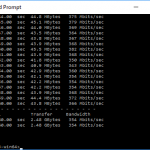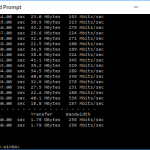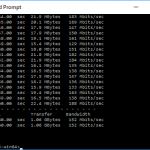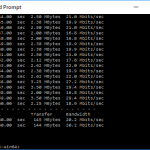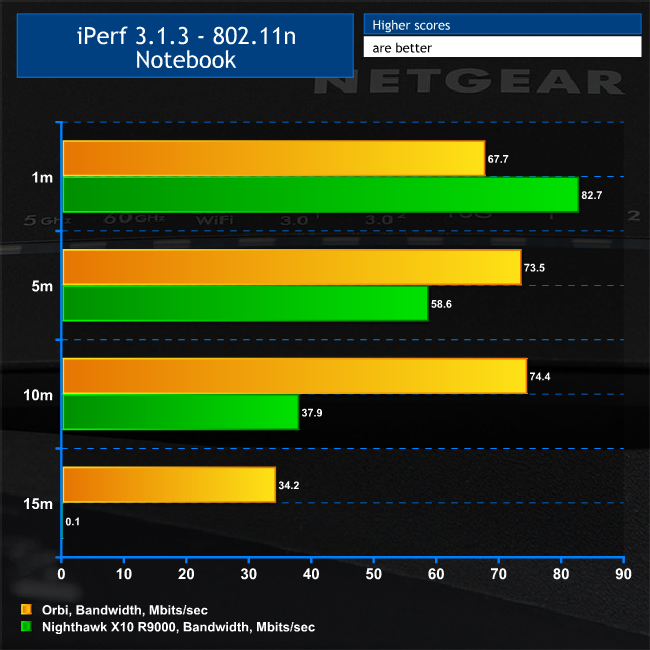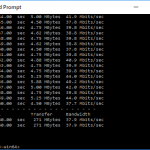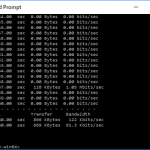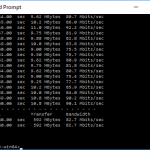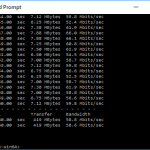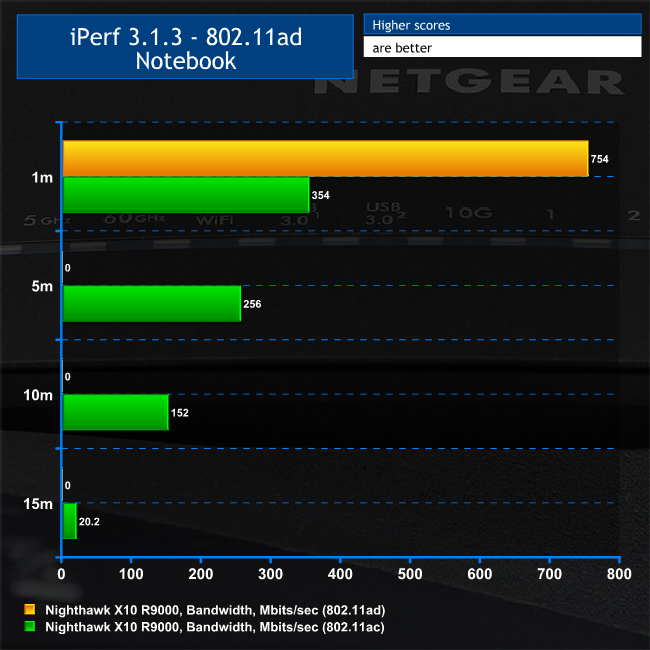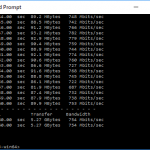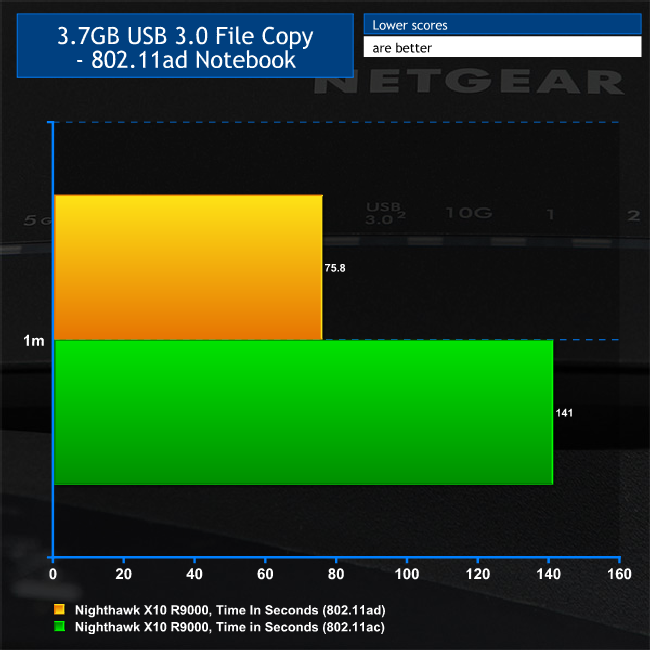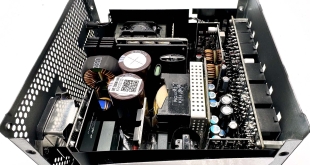We tested the NETGEAR Nighthawk X10 R9000 in two ways. First, we wanted to assess the raw throughput across the three different WiFi standards it supports – 802.11ad, 802.11ac and 802.11n. We also tested the speed of the USB 3.0 port via 802.11ad.
For the first test we used the open-source iPerf 3.1.3 software, and for the second test we used a 3.7GB file collection (actually the Windows 10 installer). Two Windows systems were used. One was a self-built Intel Core i7 workstation running Windows 10, and the other an Acer TravelMate P648 N15C5, which is one of the few laptops around so far that supports 802.11ad, and actually very hard to find in the UK as it's not officially on sale. This system was running Windows 7.
For all tests, the workstation was connected to one of the R9000's Gigabit Ethernet ports, and the notebook via various WiFi connections. The notebook was then placed in four different locations – within 1m of the router, approximately 5m away with a wall in between, 10m away and on a lower floor (with multiple walls and a floor in between), and then 15m away on a lower floor. We tested all four distances with the three WiFi standards, but only the 1m distance with the file copy (for reasons we will explain shortly).
With each WiFi standard and distance, we took 60 readings of throughput at one second intervals and calculated the average (iPerf does this automatically). For selected tests, we are also comparing the R9000’s performance with the NETGEAR Orbi. Note that for the wireless tests the Orbi’s satellite was at the same 10m distance as the notebook.
802.11ac 5GHz
The R9000 clearly has plenty of 802.11ac performance available, being 22 per cent faster than the Orbi at close range. This does drop off quite fast with distance and obstructions, but the R9000 could cover a reasonably sized house pretty well if centrally located. The Orbi clearly kicks butt for coverage, with its super-fast backhaul linking two units together to extend the signal.
802.11n 2.4GHz
The story is pretty much the same for 802.11n, with the R9000 winning out significantly at short range but dropping off more rapidly and being completely unusable at 15m.
802.11ad 60GHz
Considering the headline focus of the R9000, this is the most important test, and it's very telling. At short range, 802.11ad is more than twice as fast as 802.11ac – and this is already one of the fastest routers with this WiFi standard.
We were expecting even more, considering that on paper the R9000's 802.11ad is 2.65 times quicker than its 802.11ac. More significantly, we couldn't even get the notebook to detect the 802.11ad signal at 5m with a wall in between, showing the clear limitations of this standard.
But this is still amazingly fast at close range, so we thought we would see what it means in the real world of copying large amounts of data to and from an attached storage device, which is one of the usage scenarios NETGEAR claims the 60GHz WiFi band is aimed at (the other being streaming 4K video).
The 802.11ad standard is meant to make copying photos from your phone to your NAS (for example) so fast and easy (no cables required) that you actually do it regularly. Or you can perform system backups at wired Gigabit Ethernet speeds without the wired bit.
802.11ad 60GHz – USB 3.0 File Copy
For this test, we hooked up a 32GB SanDisk Ultra USB 3.0 Flash Memory key to one of the R9000's USB 3.0 ports and configured it via the ReadySHARE interface as network storage. We then copied the 3.7GB Windows 10 installer ISO (unpacked into individual files) to the Acer notebook via 802.11ad and 802.11ac. Since we had already ascertained that only 1m distances work, we didn't bother trying any further.
As with the iPerf test, 802.11ad was about twice as fast as 802.11ac. In fact, it was copying at close to 50MB/sec, whilst 802.11ac was only managing 26.8MB/sec. So 802.11ad was getting close to the SanDisk's rated read performance of 80MB/sec, meaning that the WiFi wasn't causing much of a bottleneck and you wouldn't be getting much better with the USB key attached directly to the notebook.
Overall, this is an immensely quick router that delivers on its performance promise of being one of the fastest, if not the fastest, wireless routers you can currently buy.
Be sure to check out our sponsors store EKWB here
 KitGuru KitGuru.net – Tech News | Hardware News | Hardware Reviews | IOS | Mobile | Gaming | Graphics Cards
KitGuru KitGuru.net – Tech News | Hardware News | Hardware Reviews | IOS | Mobile | Gaming | Graphics Cards



